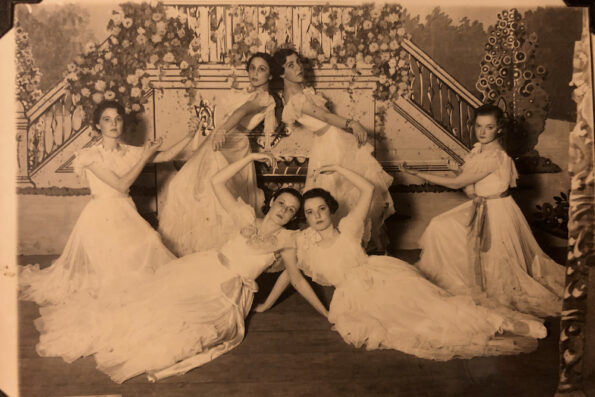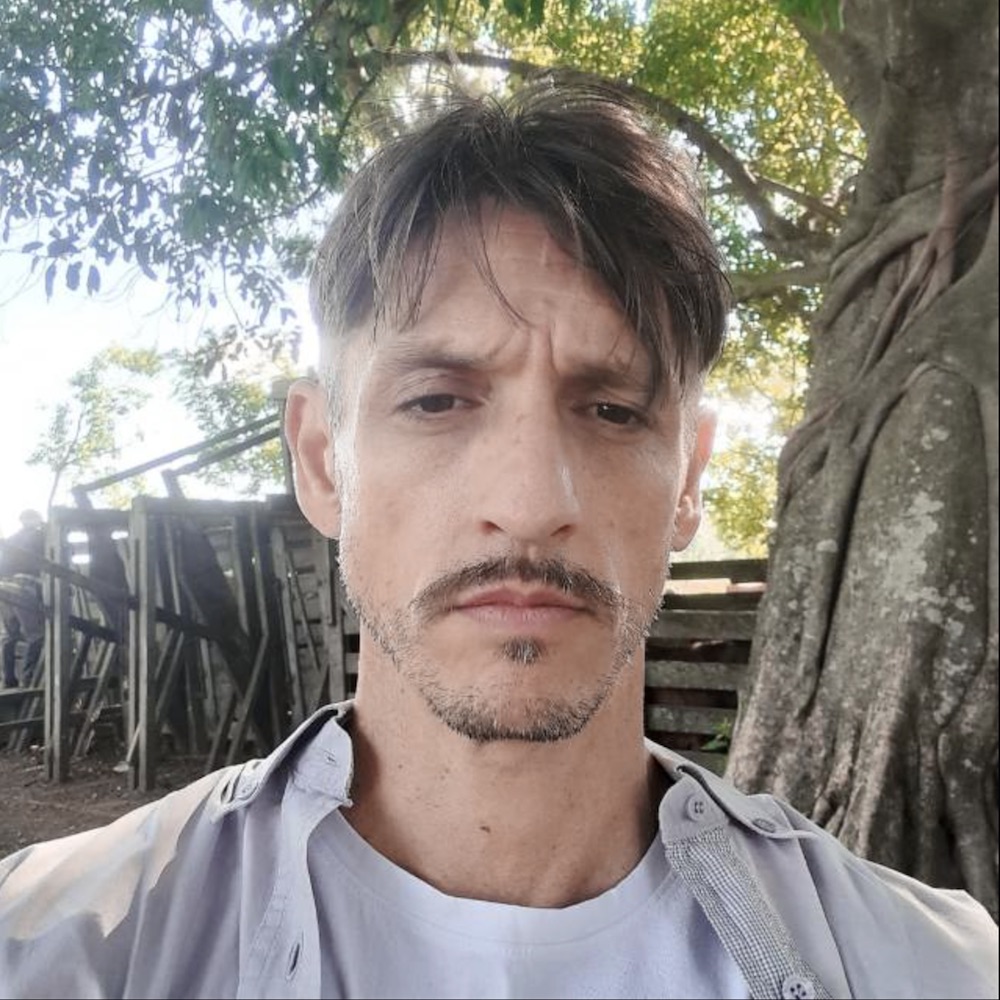Search
To search for an exact match, type the word or phrase you want in quotation marks.
A*DESK has been offering since 2002 contents about criticism and contemporary art. A*DESK has become consolidated thanks to all those who have believed in the project, all those who have followed us, debating, participating and collaborating. Many people have collaborated with A*DESK, and continue to do so. Their efforts, knowledge and belief in the project are what make it grow internationally. At A*DESK we have also generated work for over one hundred professionals in culture, from small collaborations with reviews and classes, to more prolonged and intense collaborations.
At A*DESK we believe in the need for free and universal access to culture and knowledge. We want to carry on being independent, remaining open to more ideas and opinions. If you believe in A*DESK, we need your backing to be able to continue. You can now participate in the project by supporting it. You can choose how much you want to contribute to the project.
You can decide how much you want to bring to the project.

Guaraní words were forbidden in Dansey’s home. The family, originally from Herefordshire, England, had settled in the confines of Chaco Gualamba, the last territory to be conquered by the Argentine military campaign that devastated the native population and shaped what many boast is the most European nation in Latin America.
The generation of the 80s, the intellectuals and politicians of the 19th century who designed the foundations of Argentina Potencia (Argentine Power), first conquered the Pampa and part of Patagonia in what was called the Desert Campaign (1878 – 1885), a euphemism that allowed them to make the almost one million natives who inhabited the land invisible.
That must be why in their house they did not drink mate, an infusion that the locals had consumed since before the arrival of the Spanish. At the Dansey house, tea was drunk and people sat at the table at the appointed time, properly dressed, hands and face freshly washed. Manners were required and they set the pace of the conversation. If verbal fencing was well regarded, certain rules had to be respected. Children under 13 could not speak to adults unless asked. Conversations took place between peers. Women could give their opinions but not after the patriarch had spoken.
As mentioned, speaking in Guaraní was prohibited. My grandfather had a blackboard on his desk where he taught the children English on Saturday afternoons. For each lesson learned, a coin, as if to make it clear where progress and aesthetics were headed.
That is how the Dansey family was made, by cultivating their Britishness behind closed doors. Outside, they had to adapt. Partly because it was required in order to deal with the staff and partly because in this performance of measuring against their equals, masculinity was at stake. In the countryside, good manners and a light touch were enough. Locals would never fully respect what a refined (katé) man said. In the corrals, Don Alberto and his sons drank mate, let fly guasadas (curses) and did not hesitate to say guasca [1](rawhide but also semen), pichana [2](broom, but also a lot of threshing), kurepa (a white man, thus delicate) and opama (end of discussion). Every self-respecting man had to know how to throw a sapucay [3]a shout of victory launched to the sky that works as an exaltation and incantation..
The English call this way of carrying out colonization, of blending in with the locals, running native, which in my own translation I would say was walking like savages, because except in sports, the English don’t run much. If there is one thing that characterizes the English, it is going through life with the calm that titles and weapons confer on them. Those who run, those who run for cover, are the others, the non-English, the uncivilized.
Tona Dansey, daughter of Alberto, my grandmother, was a great lady. I say this without fear of sounding presumptuous, something she would consider very bad taste. Distinguished, without ever losing her sobriety, she fulfilled all the requisites that the manuals of female domesticity required.
She raised 6 healthy children and 25 grandchildren to whom she transmitted optimism in the face of the misfortunes that any family confronts. Firm, like a coat of arms, regal like a queen and, knowing that she fulfilled what was expected of her, Tona was a woman who allowed herself certain liberties that I am going to relate, though not without feeling that I am betraying her. For my grandmother, the intimacy of the house was a limit that protected honor and modesty.
The same table where we ate fruit with a knife and fork was the place where she used to display her antics. Among the most common one was a kind of origami that she made with napkins which, after all the folds, ended up transformed into a bra or panties, which she would then try on to make the kids laugh.
Tona had no problems with body issues. The old lady would often entertain the troops at baptisms and weddings with songs, poems and language games that rhymed with ass, butt, and balls. At the time of the family photo, when Rulo, the town’s photographer, asked us to gaze at the bird, the old lady would unexpectedly show her ass behind the camera to leave the kids immortalized in laughter. These were Tona’s jokes, as unexpected as they were opportune in their time and space.
The intimacy between cousins was another story, including dirty words, guarangadas as they called the vulgar expressions attributed to the Guaraní. Cousins would share rude comments and bad words. We used to say cachí pelón (shaved pussy) and cachí hediondo (stinky pussy), cajeta (vagina) and poronga (penis). We would end a sentence with a Uatata aña menby (son of the Devil) which was more of a shout of joy than an insult. Among cousins we allowed ourselves to say chamigo, which is the way of saying my friend in Guarango. That was how we spoke to each other, and that was how we spoke to the maids in the kitchen and to the laborers in the field. In those circles, native words and less-than-polite behaviors were common, such as touching one’s genitals, spitting, belching, and boasting about farts. Away from authority, we lived naturally and happily.
I grew up encouraged by that path, which in a certain way I lost when I emigrated from Chaco to Buenos Aires. I was looking for better professional horizons, I was determined to make a name for myself, to conquer a space in the capital of Buenos Aires.
I worked as a journalist for various media but wanted to set foot in the field of contemporary art, which I frequented as an amateur. The city allowed me to live my sexuality more freely. Six months after arriving, I founded a criticism magazine with five gay men I had just met. We called it Sauna. Hot, naked opinions. The right to say everything, to make public what we said in private.
I frequented the places I thought were appropriate, I created circles that made allies and adversaries. I wore jackets and shirts, shoes and briefcases, glasses and ties in a combination of elements that made me the dandy I was in my dreams. I sophisticated my language and just as I wore pilcha5, I also developed a vocabulary that included voices and idioms that I took from socialites and the intelligentsia.
Although saying what one feels has its costs, and the truths I defended gave me enemies that I still have today, I must say that I did not do badly. Despite how violent one can be with what one says, good manners and other cultural weapons that I inherited from my ancestors and put at the disposal of my own battles served me well.
What I had created worked, but as I went along I discovered that something inside me was twisted. A slight anguish like an unpredictable fart, existential gas that I released on the couch: repressed swearing.
I no longer said angá, that very particular way of referring to a poor person, a physically challenged person, a person who was to be pitied, which unlike “poor” is a word loaded with compassion, benevolence, and acceptance. I no longer said mboyeré about something that is all mixed up and for that reason is beautiful, because it presents the challenge of unraveling it. I no longer said chake (careful) with that clear and forceful determination. I no longer said chamigo.
I realized that, yes, I had friends with whom I could share myself in a more relaxed way, all the way. Friends with whom to laugh at myself, and at others, of course. With whom to share guilty pleasures, brought up from the depths, however incorrect they may be, with the desire to be understood.
A network of close people who did not replace the original family but functioned similarly and at certain times even better, because for better and for worse they were people I had chosen. Friends with whom to inhabit a permeable space between the intimate and the public, the private and the collective, a broader, freer field of meanings. I am not referring only to questions of language, because ultimately words govern daily behavior down to the most mundane details. I am referring to the shared code that implies the desire and effort to understand each other, where saying and doing are shaped around the significance of life.
[Featured Image: Tona Dansey at the debutants’ ball. 1935]

"A desk is a dangerous place from which to watch the world" (John Le Carré)